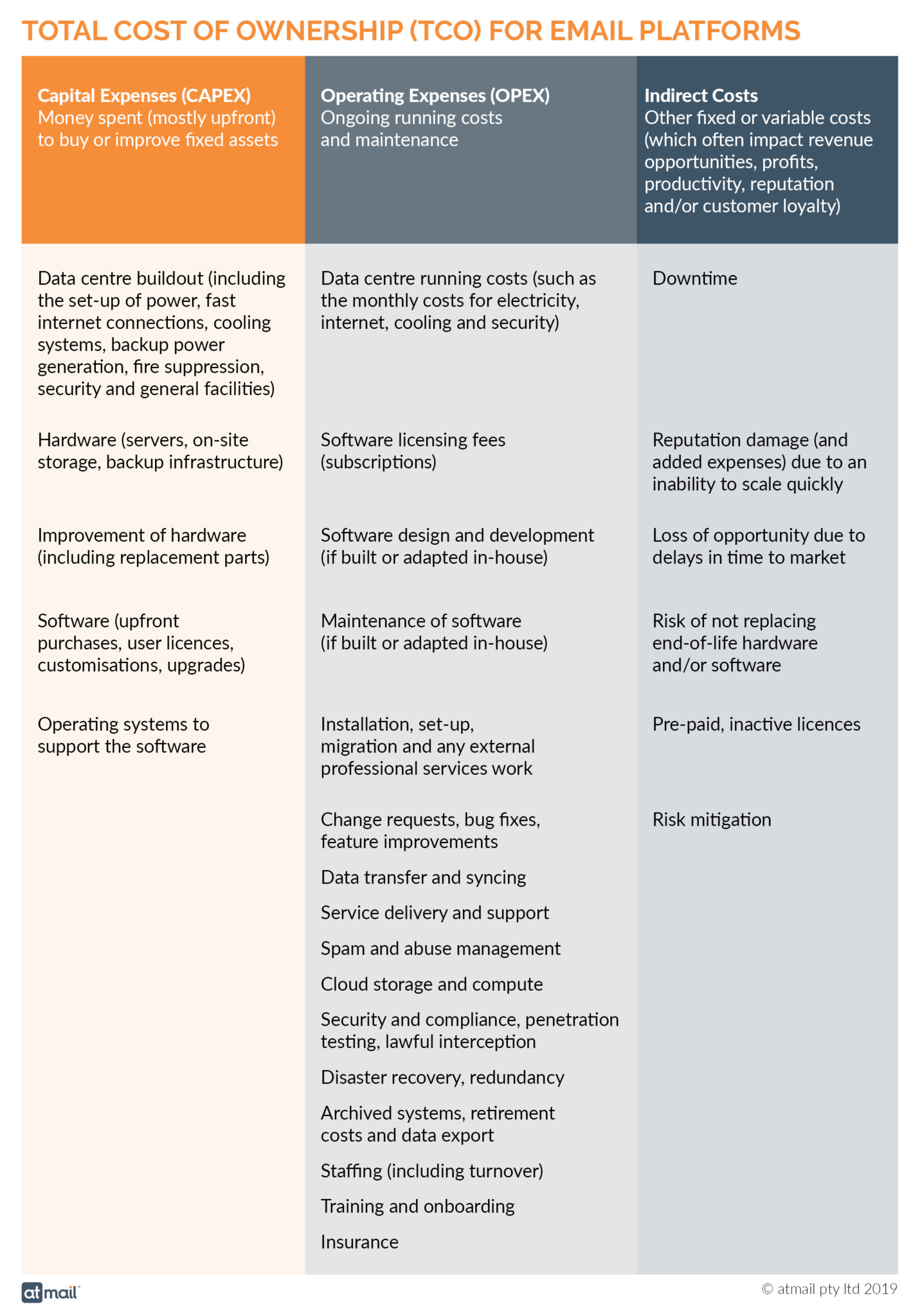
Email Hosting Facts
If you’re looking for a new email hosting solution for your telco email platform, be careful what you read; not all offerings are created equal. Not all solutions are designed for telcos. Not all cloud solutions are available without going through a third party. Not all solutions can scale reliably as you grow. And some solutions require overly hefty payments upfront.
Sure, it’s easy to scan the “10 Best Email Hosting Provider” listicles* and think that you’ve found your vendor shortlist, but most of these listicles showcase the same recycled list of entries that were published the year before, without any real depth to what each product does or to who each product is best suited, without any updates to their commentaries (to account for regular product updates), and without any reference to the specific needs of telcos.
For this reason, when doing research for a telco email platform provider, it’s important to know the following five key email hosting facts, so you’re comparing apples with apples.
1. Telco email platforms are unique
Not all email hosting solutions are the right-fit for telcos. Whilst an SME customer might be able to forgive some occasional email downtime and a poor user experience for a cheaper price, telco brands (who have thousands if not millions of customers depending on them to keep their e-lifeline afloat) cannot afford downtime and sub-standard customer experience, without risking large-scale backlash and churn. When you’re comparing email hosting solutions, look for an email hosting solution that is designed for the intense demands of telcos.
2. You don’t always need the kitchen sink
We’ve talked before about Bridget Fonda’s lesson for choosing an email platform. To summarise that important lesson: try not to get distracted at the beginning of your research by long lists of inclusions; your email customers don’t usually need 101 features, and they/you won’t usually want to pay for them.
One example would be the Tasks feature. Very few people (we have the data) use features such as task lists on a consumer email platform. So it’s better to focus on (and pay for) the most utilised features (such as read, send and search), and ensure that experience is amazing for your end users, rather than paying for a bucket of features that you/your customers genuinely won’t use.
3. Cloud email can cost less
Cloud hosted email can be the cheaper option for telco email platforms that have been traditionally run on-premises. Each telco’s situation is different however, so each telco should determine their Total Cost of [Email] Ownership (TCO) and assess their overall cost-effectiveness (namely CAPEX versus OPEX, capped versus uncapped costs, as well as lost opportunity cost).
Download now: The Business Case for Moving Email to the Cloud.

4. Large telco email platforms cannot get fully up and running in “10 minutes”
Don’t be fooled by click-bait headlines promising 10-minute miracles. Anyone can migrate data rapidly, but can everyone take care of the user journey, and not lose customer email accounts along the way?
Email migrations for large telco email platforms can take up to 30 to 90 days for the actual migration, depending on: what data (and volume) of email is being migrated; the migration methodology; the available network bandwidth; as well as the number of users. For millions of mailboxes, it would be prudent to allow more than 90 days, because the limitation is often not technical but organisational (e.g. internal red tape on the telco side, changes within the telco’s internal action team, and limits to internal help desk resourcing).
5. Cloud email hosting can be more secure
Reputable cloud email provider options can provide more security benefits than on-premises email, thanks to:
- a faster resolution of security issues;
- the removal of end-of-life security and compliance concerns;
- a greater ability to add more security layers; and
- robust security from expert teams dedicated to email.

Recap
If you’re looking for a new email hosting solution for your telco platform, always remember to:
- Compare email solutions that are designed for the unique needs of telcos;
- Know your must-haves, and prioritise these in your comparisons;
- Understand your TCO, to better understand if in-house or external email hosting is right for you;
- Don’t be fooled by clickbait headlines making wild promises (or inferences); and
- Talk to cloud security experts, if you need reassurance about why cloud email hosting can be more secure.
New to atmail?
atmail is an email solutions company with 22 years of global, email expertise. You can trust us to deliver an email hosting platform that is secure, stable and scalable. We power more than 170 million mailboxes worldwide and offer modern, white-labelled, cloud hosted email with your choice of US or (GDPR compliant) EU data centres.

